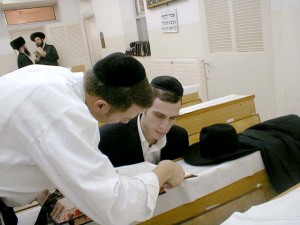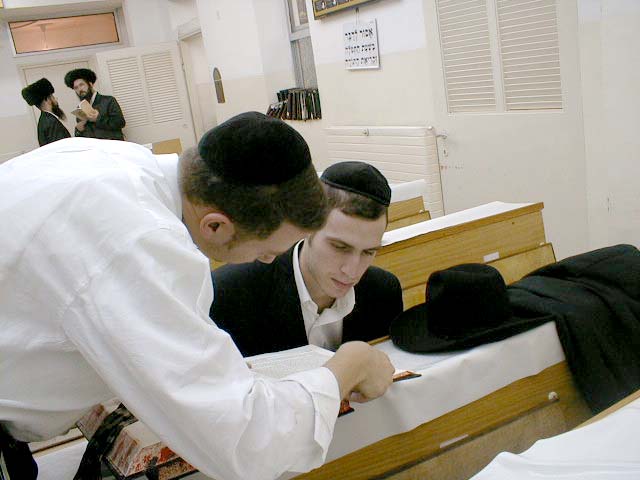
The Story
Aryeh was having a difficult morning. The smoke detector went off in his home just after he woke up. He ran outside with his whole family, most still in their pajamas. Thankfully there was no fire – just burnt toast in the kitchen.
By the time he came back into his house he was far behind schedule. Despite his attempts to rush, he arrived at school late. His class was almost finished praying pesukei d’zimrah. Hopefully there was still enough time to catch up and join them for the amidah. He put on his tefilin and just as he bowed to recite borchu he remembered that he had forgotten to say the Birchos HaTorah after he awoke at home.
“Oh no” he thought. “I know that I am not supposed to read sections of the Torah such as the Shema without first saying Birchos HaTorah, but if I recite the birchos hatorah now I don’t think I’ll be able to catch up in time for the amidah.”
What should Aryeh do?
Discussion
Q: What connection does our story have with the Parasha?
A: In the first aliyah, we find the pasuk כי שם ה’ אקרא הבו גודל לאלקינו (“When I call out the name of G-d, discuss his greatness.”). The Talmud in Maseches Brachos (21a) derives from this pasuk that anytime a Jewish person wants to learn Torah, he must first say a blessing. This is why we say Birchos HaTorah each morning.
Q: In the siddur, immediately following Birchos HaTorah we find the text of the Birchas Kohanim, and the section of Eilu Devarim (אלו דברים). Why do they come next?
A: When we make a bracha, we must perform the action of the bracha as quickly as possible. Therefore, after we make the bracha of Birchos HaTorah , we must study Torah as quickly as possible. When we read the section of Birchas Kohanim we are studying Torah because the words come from the text of the Torah. When we read the section of Eilu Devarim we are reciting sections from Mishna and Gemara, which is the Torah shebealpeh. So within seconds of reciting the Birchos HaTorah we have performed the mitzva of learning Torah!
Q: What should Aryeh do?
A: Tefilas Shacharis includes its own special Birchos HaTorah. They are the blessings that we say before Shema: Ahavat Olam or Ahavah Rabah. Within those blessings we mention the words ‘ותן בלבנו בינה להבין ולהשכיל לשמע ללמד וללמד וכו, a special prayer for understanding Torah. If a person intends to be yotzeh the blessings over the Torah by reading these passages, there is no need to recite Birchos HaTorah again. However, one must actually learn some Torah immediately after finishing Shacharis, thereby engaging in the mitzvah with as little an interruption as possible. This indicates that the words were indeed recited as a blessing over the Torah (Shulchan Aruch, Ohr Hachaim, 47, with comments of Mishna Berura 14-16).
(Written by Josh and Tammy Kruger, in collaboration with Rabbi Yehoshua Pfeffer of the Institute for Dayanim, based on the following article by Rabbi Aryeh Citron: http://m.chabad.org/library/article_cdo/aid/986857/jewish/The-Blessings-on-the-Torah.htm)


